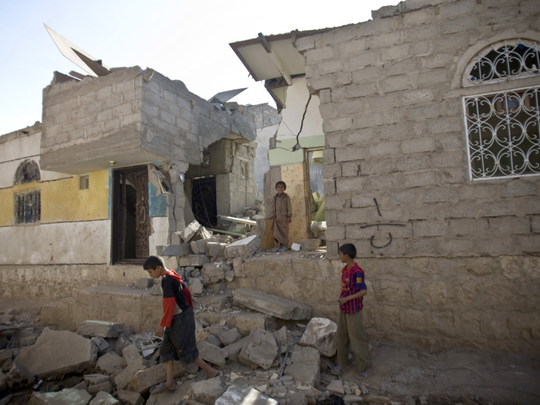
The decision taken by Arab leaders to form a joint Arab force is no doubt a significant one, signifying a ground-breaking step, observed the UAE’s Al Khaleej. “It is a step that emphasises that Arabs are no longer in a state of responding to threats, but rather taking action against them, especially after their lands have been threatened by various powers. Although it is an important resolution, it’s not enough as it needs to be activated immediately within the framework of the joint Arab defence agreement. The resolution must follow the agreement’s amendments in compliance with the latest developments and threats to national Arab security. It is vital for Arab leaders to determine goals and draw up the necessary strategies to ensure this force’s success in performing its duties. To do so, this requires putting an end to inter-Arab conflicts and divide.”
Arabs used to not expect any positive resolutions by the regular Arab Summits. However, the Sharm Al Shaikh summit has given a different impression, said the London-based Al Hayat daily. “This is the first time that Arabs unanimously agree on a resolution, giving full legitimacy to [Storm of Resolve] and the formation of a joint Arab force. The summit also isolates perpetrators of the coup and their supporters in Yemen. The summit sent a clear message for internal Arab parties not to seek support from foreign powers, to stop promoting sectarianism and sowing the seeds of terrorism in the region. The success of the Sharm Al Shaikh summit is attributed to the major mistakes committed by Al Houthis in Yemen, who carried out a coup against the legitimate presidency of Abd Rabbo Mansour Hadi.”
Storm of Resolve has proven that the Gulf Cooperation Council countries are capable of protecting their security and sending a clear message to those who seek to harm the Gulf, said Qatar’s Al Sharq. “The message is clear: Patience has its limits. The operation highlights the capability of Saudi Arabia’s King Salman Bin Abdul Aziz to make the appropriate decision at the appropriate time to protect the people of the Gulf and Arab world from the dangerous Iranian expansion in the region. Qatar has always been among the first countries that call for respecting legitimacy and the people’s right to choose their ruler. The military campaign for restoring legitimacy in Yemen is also a practical implementation for the calls to support Arab Spring revolutions by Qatari Emir Shaikh Tamim Bin Hamad Al Thani.”
Pan-Arab paper Asharq Al Awsat said that the military campaign has a political role, which is to push all parties towards a solution under the United Nations umbrella and according to what UN Security Council members have agreed upon. The armed rebels must realise that the transitional Yemeni government, which does not have significant military power, is in fact legitimate and that there is a large military force that is willing to protect it if needed. The second chapter after the military campaign is political and it’s about the return of all parties to negotiations and the search for a political solution, which does not exclude anyone. Those who try to make the battle look like it’s a war with no international plan and no legitimacy only care about keeping the fighting going ...”





_resources1_16a31069e4e_small.jpg)






